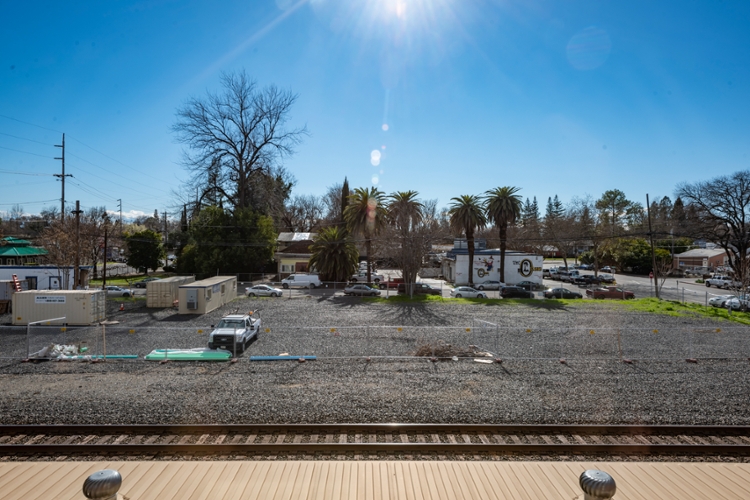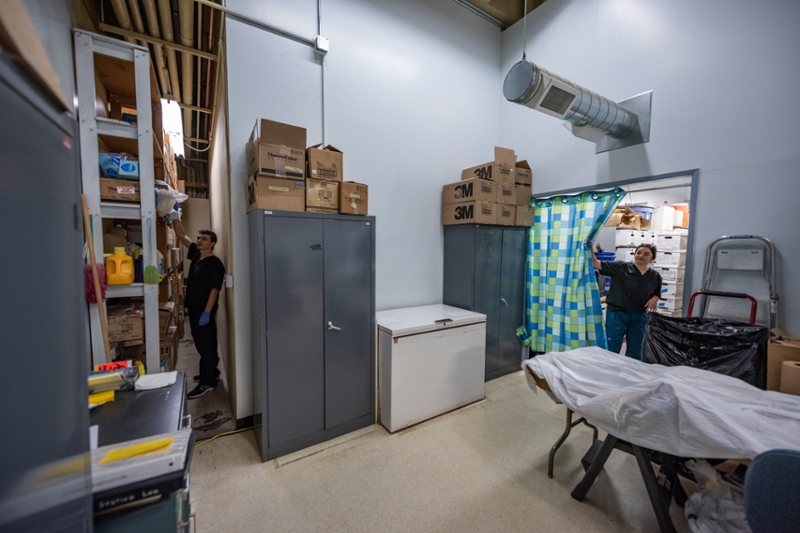In the last ten years, our caseload has more than doubled.
We now serve 80% of California’s counties, national nonprofits such as the Center for Missing and Exploited Children, and federal agencies such as FBI, the Department of State's National Institute of Justice, and the Department of Defense’s POW/MIA Accounting Agency, which works with us to recover, repatriate, and identify the remains of our veterans.
We’ve launched a campaign to build a new lab for the next generation of our nation’s citizens.
The site for our updated facility, secured in Chico State's new Master Plan, is at 1st and Cedar Streets. When complete, the new HIL will serve as headquarters for our search-and-recovery services and offer identification work in a lab with 21st-century-equipment. It will triple our refrigeration units, significantly increase both wet and dry lab space, and add more work stations for lab techs. It will provide offices, secure lockers and professional changing facilities, better security systems, up-to-date natural lighting, and improved ventilation.
The new HIL will also offer classroom space for our Peace Officer Standards and Training (POST) short courses, the Certificate in Forensic Science, the graduate program, and other workshops and trainings. It will sit at the edge of campus, easily reachable from the highway, with parking for consulting law enforcement agencies and access for Coroner’s Office vans for discreet transport of remains.
From the new HIL, we will be able to rapidly mobilize, providing search and recovery in large-scale emergencies like wildfires, bus accidents, pipeline explosions, and natural disasters. Better facilities will speed our identification of remains, aiding families and assisting legal proceedings. The new facility will offer incredible value for the region’s citizens and for police and coroner’s departments, district attorneys, the California Department of Justice and federal agencies. In this new facility, we will also train the next generation of forensic anthropologists to search, recover, and identify the missing. We’ll provide families with closure, bring criminals to justice, and learn from tragic accidents in order to make all our communities safer.
 We've operated all search and recovery, lab work, and training programs out of a cramped 1972 lab space since 2002. Prior to that, our activities were based out of an unused, 3rd-floor classroom.
We've operated all search and recovery, lab work, and training programs out of a cramped 1972 lab space since 2002. Prior to that, our activities were based out of an unused, 3rd-floor classroom.
According to our Facilities Department, our existing space is too small to renovate. Even if we take walls down and reconfigure the space, we won't be able to process the number of cases per year being referred to us. We also need up-to-date facilities and equipment for future accreditation.
In order to meet the expanding demand for our services, the lab must grow. We must build a new state-of-the-art facility for the 21st-century. That’s what our campaign is all about.


 We've operated all search and recovery, lab work, and training programs out of a cramped 1972 lab space since 2002. Prior to that, our activities were based out of an unused, 3rd-floor classroom.
We've operated all search and recovery, lab work, and training programs out of a cramped 1972 lab space since 2002. Prior to that, our activities were based out of an unused, 3rd-floor classroom.